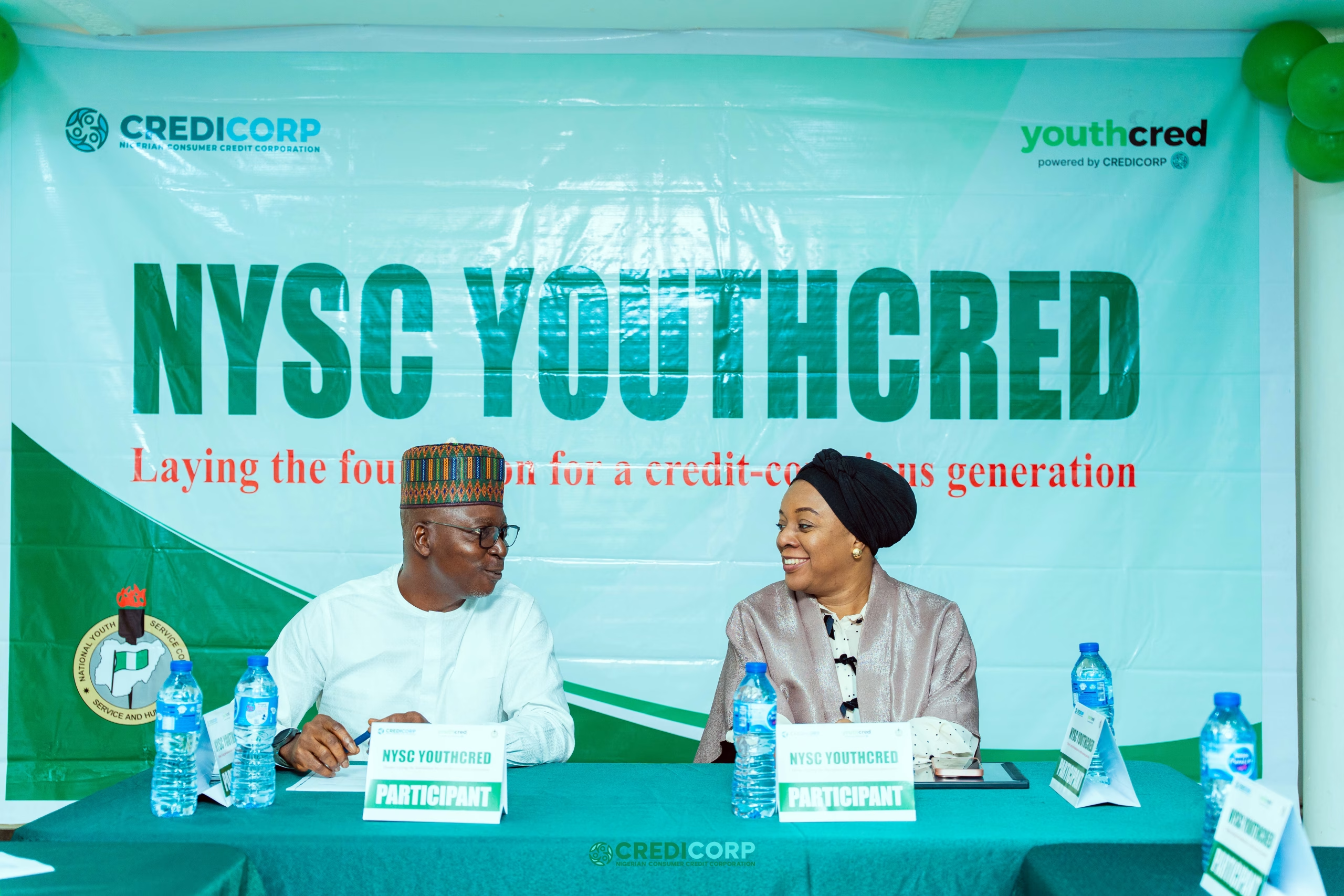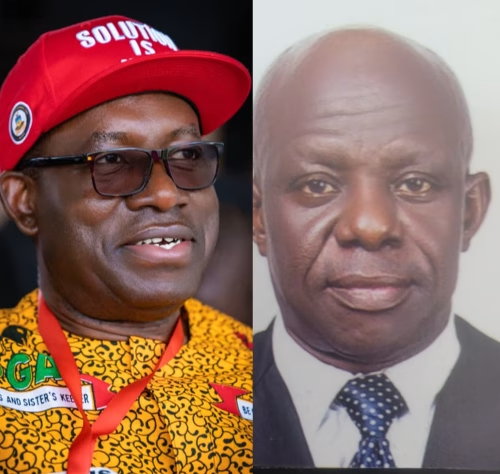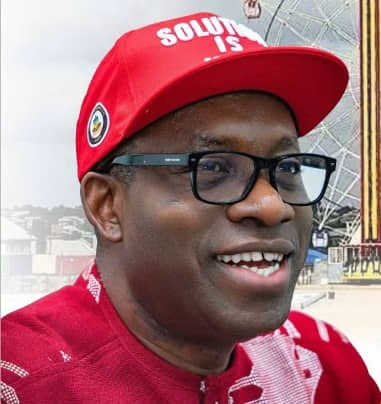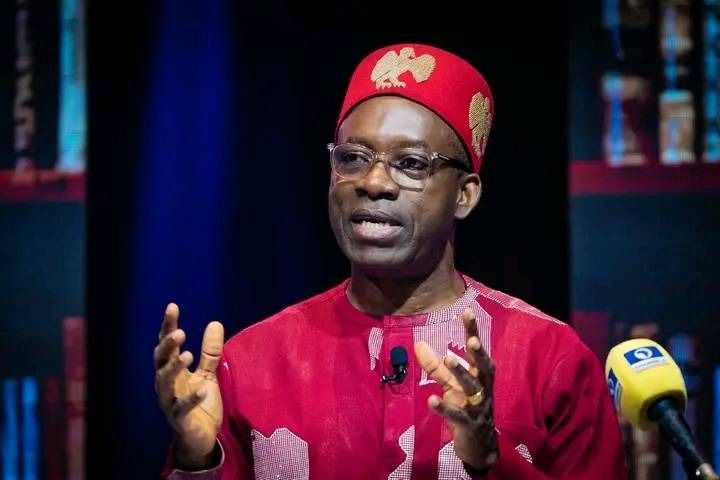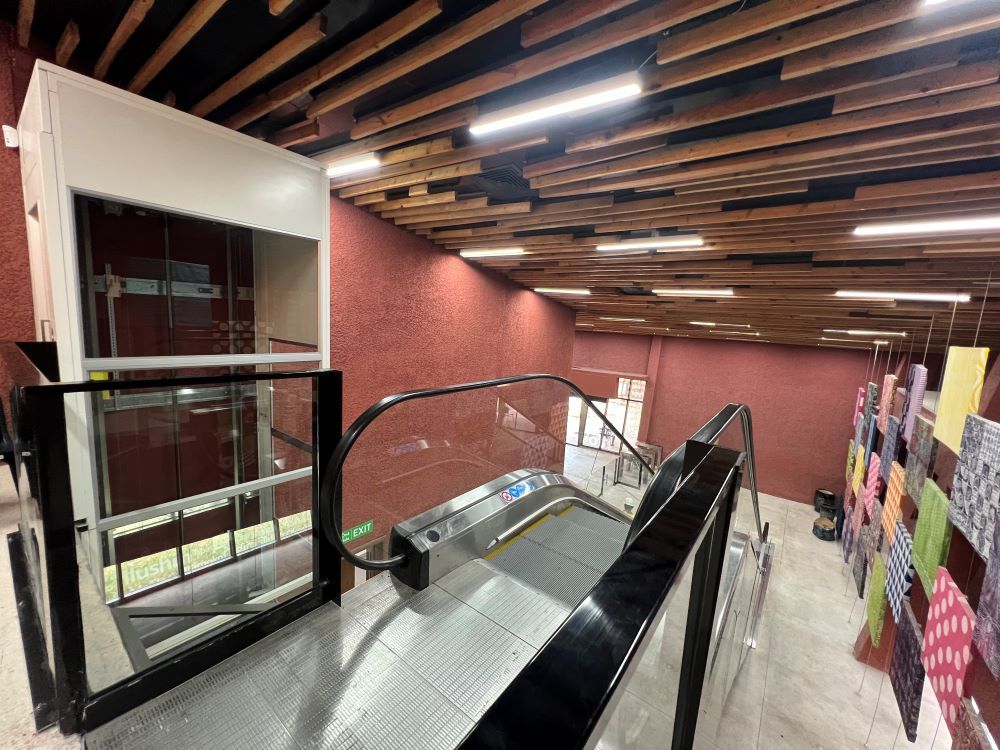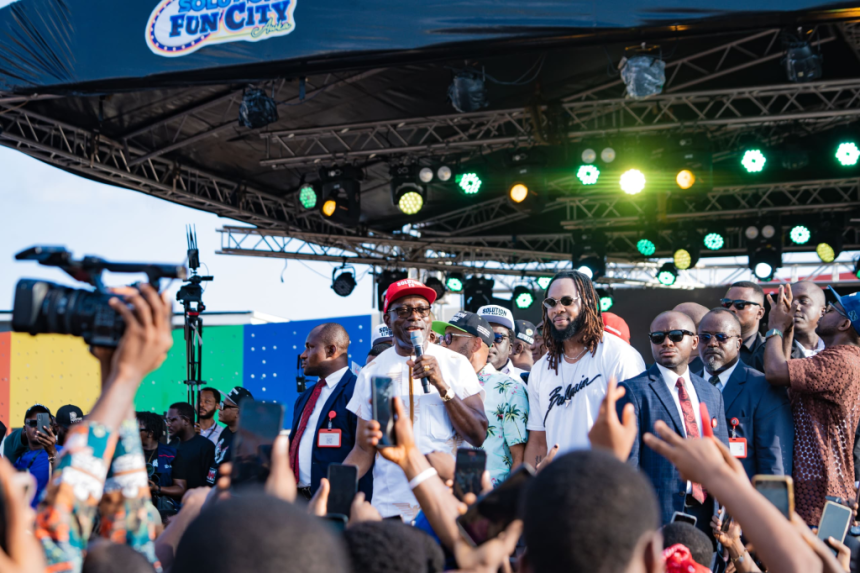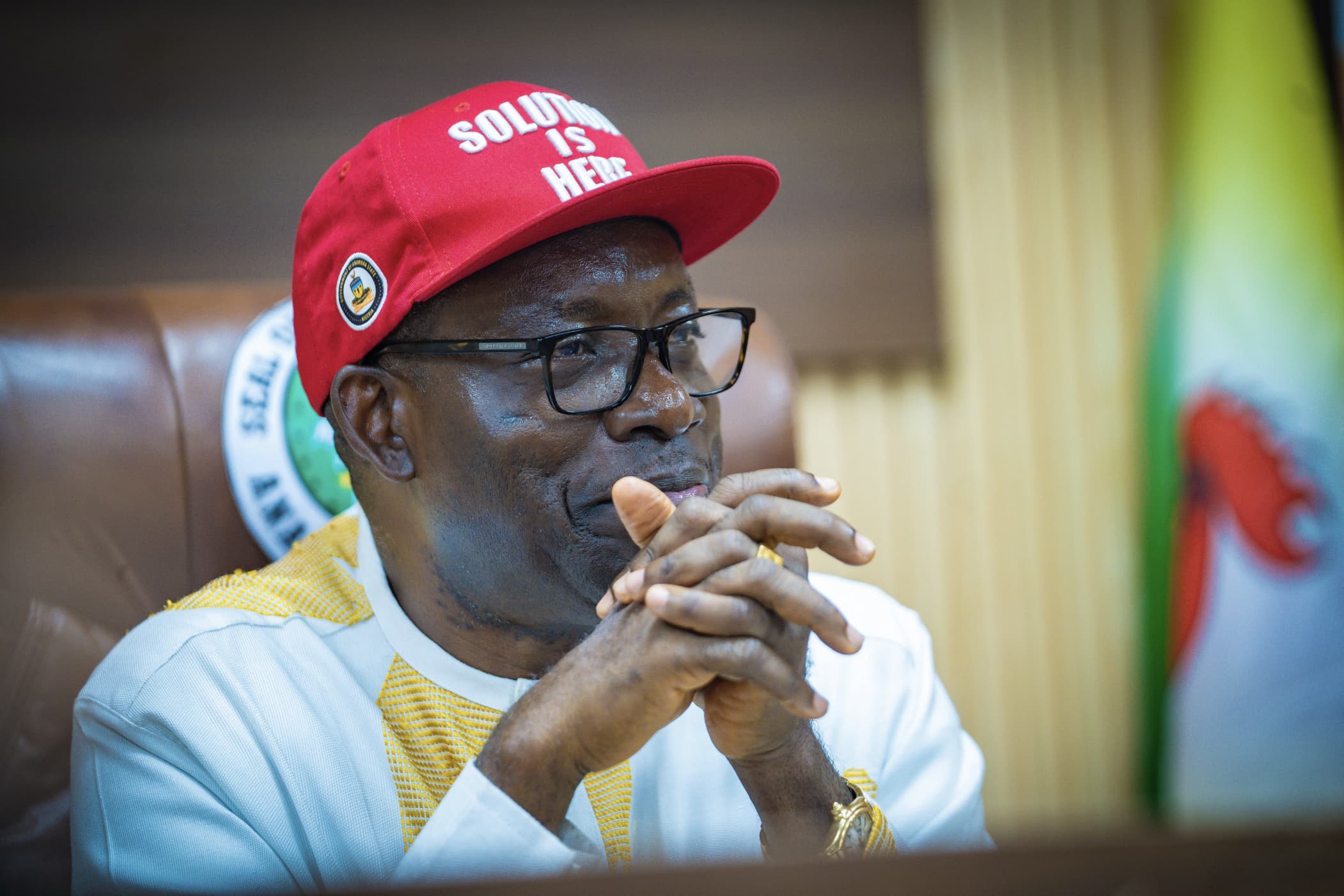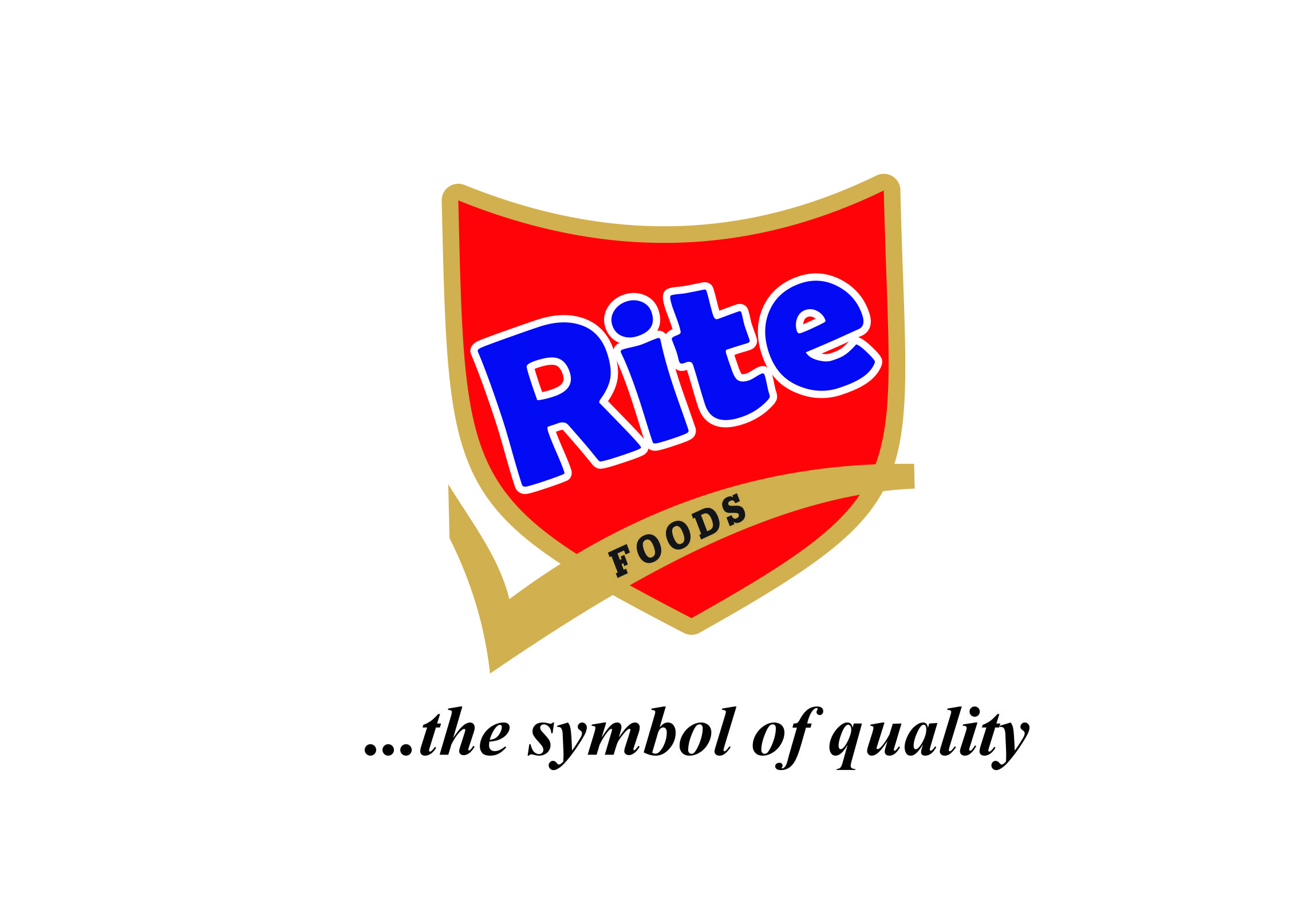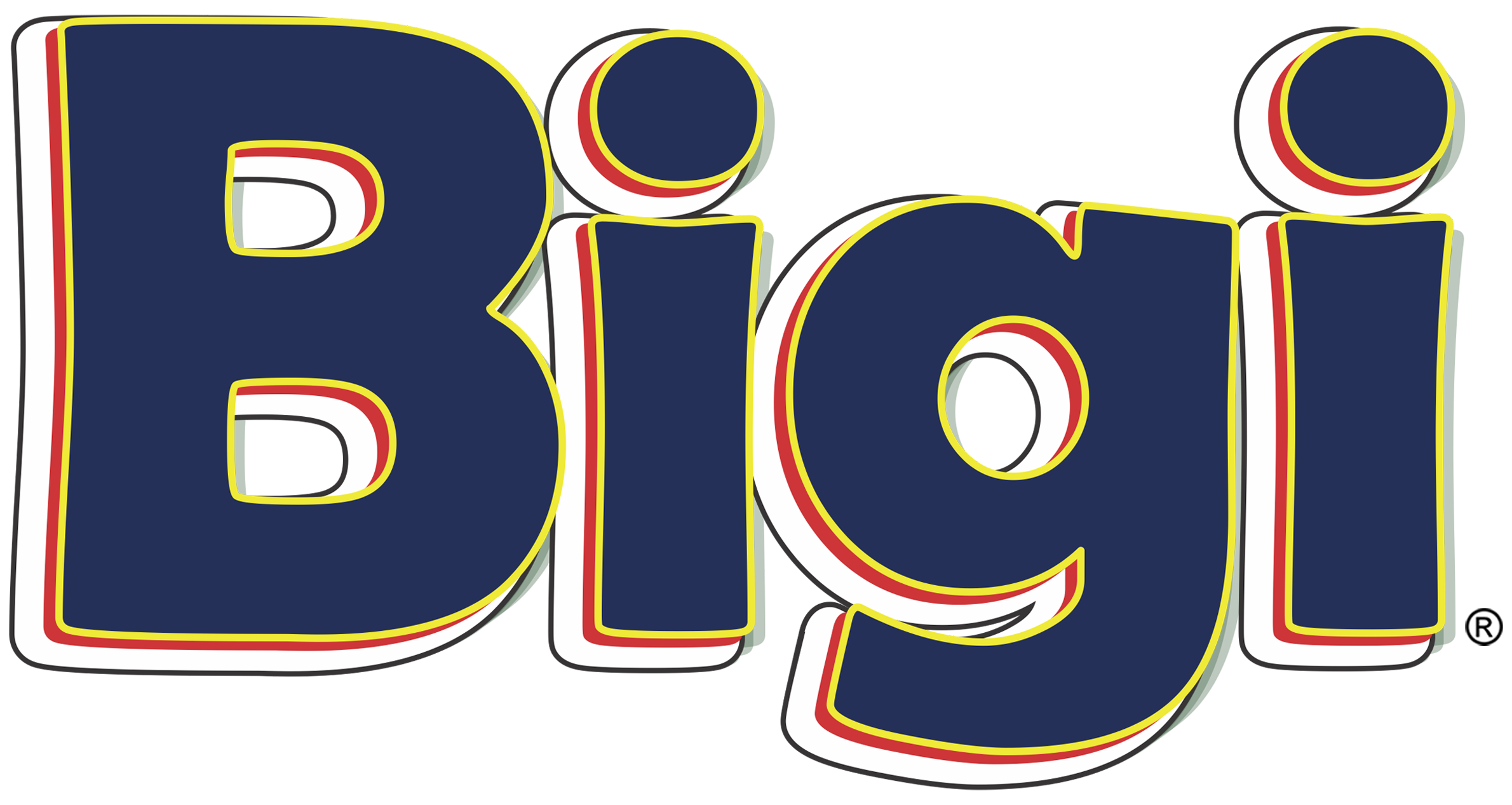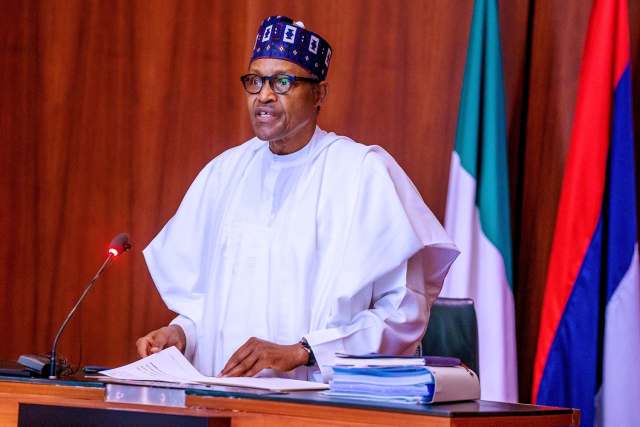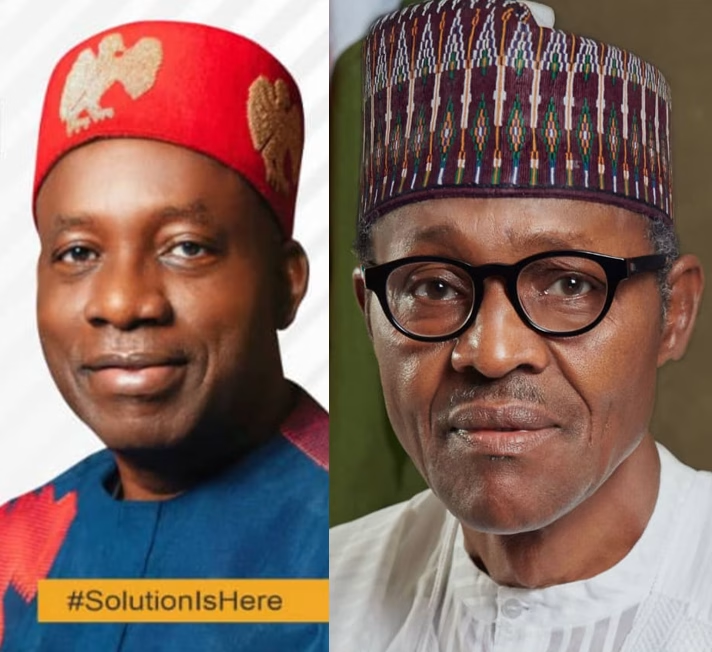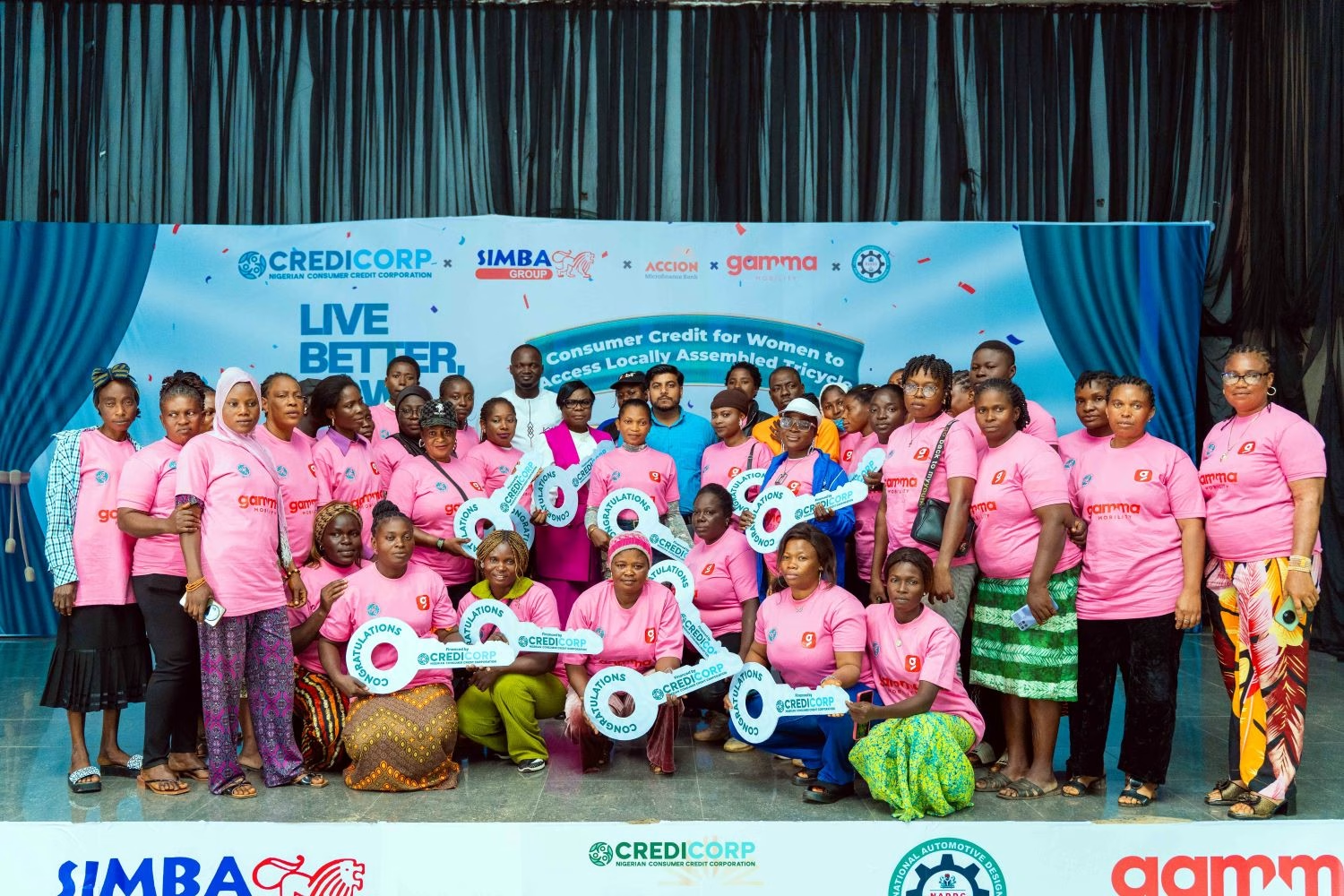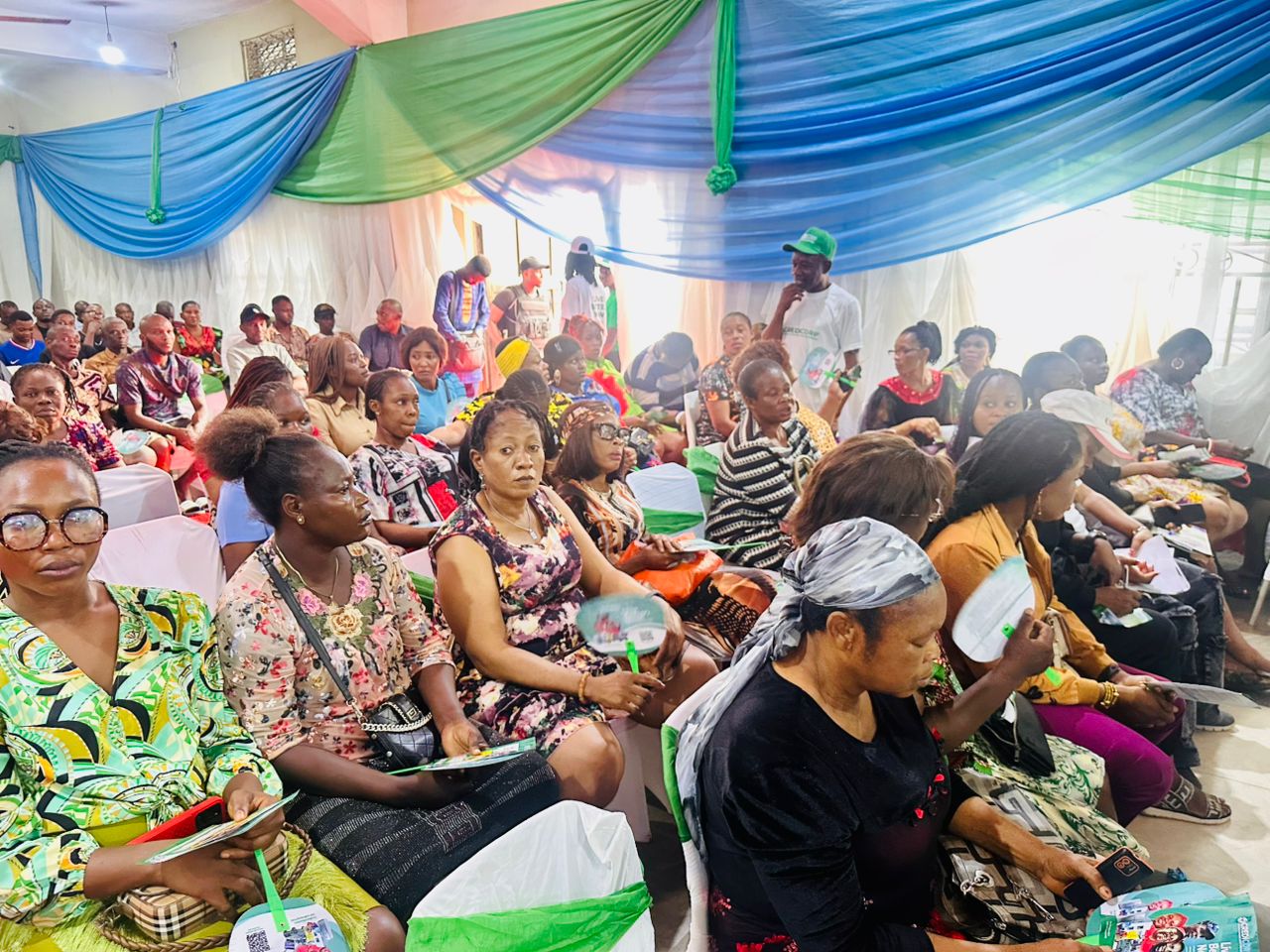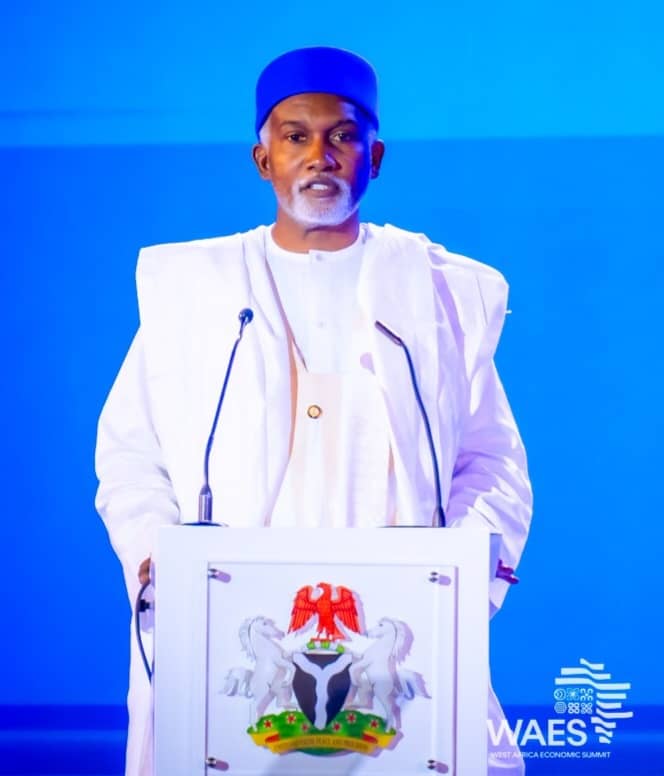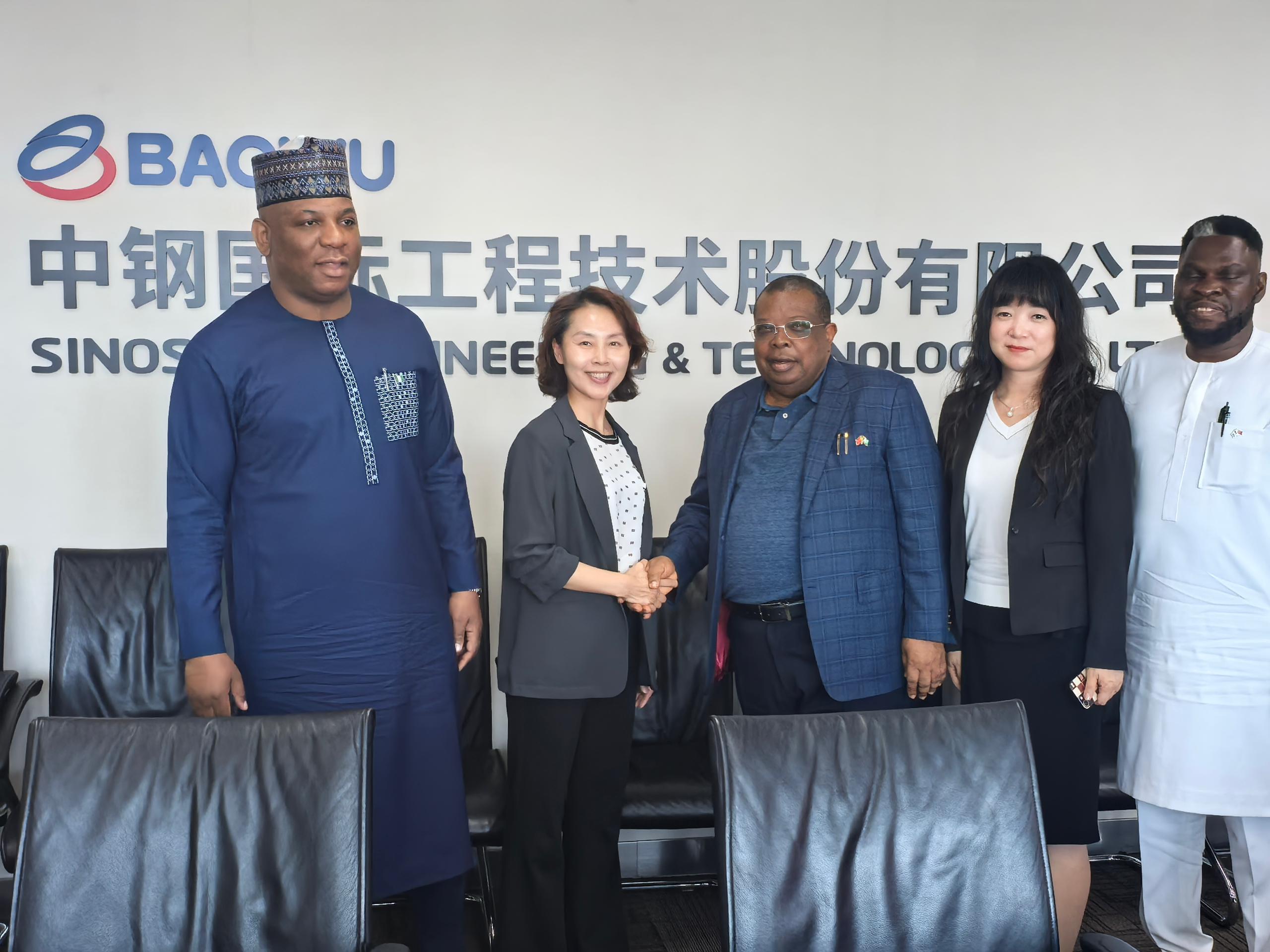The second quarter (Q2) 2020 Gross Domestic Product (GDP) report released by the National Bureau of Statistics (NBS) yesterday that showed a 5.01 per cent jump in growth, compared with the 0.51 per cent recorded in Q1 2021, triggered excitement among Nigerians.
This indicated a silver lining that the country may be returning to real growth after adjusting to inflation and population growth.
The GDP growth recorded was the highest quarterly growth since 2014.
Owing to this, President Muhammadu Buhari has expressed excitement over the development.
Also, the Special Adviser to the President on Economic Matter, Dr. Adeyemi Dipeolu, attributed the GDP performance to some interventions put together by the federal government to reposition the economy after the devastating effects of the COVID-19.
But analysts which included the Managing Director of the Financial Derivatives Company Limited and a member of the President’s Economic Advisory Council (EAC), Mr. Bismarck Rewane, have warned that the economy was not yet out of the woods.
According to the NBS, the GDP grew 5.01 per cent (year-on-year) in real terms in the second quarter of the year (Q2 2021), compared to the -6.10 per cent recorded in Q2 2020.
This marked three consecutive quarters of growth following the negative growth rates of -6.10 per cent and -3.62 per cent in Q2 2020 and Q3 2020 year-on-year respectively.
The statistical agency pointed out that the Q2 2021 growth rate was also higher than the 0.51 per cent recorded in Q1 2021 year -on -year, indicating the return of business and economic activities near levels seen prior to the implementation of COVID-19-related restrictions.
According to the GDP report for Q2, the “steady recovery observed since the end of 2020, with the gradual return of commercial activity as well as local and international travel, accounted for the significant increase in growth performance relative to the second quarter of 2020 when nationwide restrictions took effect.”
Year-to-date, real GDP grew 2.70 per cent in 2021 compared to the -2.18 per cent recorded in the first half of 2020, the NBS added.
Nevertheless, the statistical agency further noted that quarter-on- quarter, real GDP grew by -0.79 per cent in Q2 compared to Q1 2021, reflecting slightly slower economic activity than the preceding quarter due largely to seasonality.
In the quarter under review, aggregate GDP stood at N39.12 trillion in nominal terms, higher than the N34.02 trillion in Q2 2020, indicating a year-on-year nominal growth rate of 14.99 per cent. It showed that Real GDP stood at N16.69 trillion in Q2.
According to the report, the nominal GDP growth rate recorded in Q2 was higher than the -2.80 per cent growth recorded in Q2 2020 when economic activities slowed sharply at the outset of the pandemic.
Furthermore, the NBS report showed that nominal growth rate was also higher than the 12.25 per cent growth recorded in Q1 2021.
Daily average oil production stood at 1.61 million barrels per day (mbpd), which was -0.10mbpd lower than the 1.72mbpd recorded in Q1 and -0.19mbpd lower than the 1.81mbpd recorded in the same quarter of 2020.
According to the report, the oil sector contributed 7.42 per cent to total real GDP in Q2 compared with the 9.25 per cent seen in Q1 and 8.93 per cent in Q2 2020 while the non-oil sector contributed 92.58 per cent to GDP in real terms.
Agriculture’s contribution to GDP grew to 23.78 per cent from 22.35 per cent in Q1.
A further breakdown of the figure showed that real contribution of the manufacturing sector to GDP in Q2 stood at 8.69 per cent, lower than the 9.93 per cent in Q1 and 8.82 per cent in Q2 2020.
The contribution of trade to GDP increased to 16.66 per cent from 15.61 per cent in the preceding quarter as well as 14.28 per cent in Q2 2020.
Also, the information and communication sector contributed 17.92 per cent to GDP in Q2 compared to 14.91 per cent in Q1 and 17.83 per cent in the previous year.
Also, Dipeolu said the challenges facing the country could be tackled through robust adoption of technology, pointing out that the potential solutions ranges from improving the delivery of education using digital contents, deepening financial inclusion, through the expansion of digital payment systems especially for the distribution of social benefits.
According to him, “We have had to resume our efforts to tackle poverty in order to achieve sustainable growth, while using vaccinations and pharmaceutical interventions to fight the spread of the virus. While the pandemic presents challenges to governance, it also provides opportunity for public private sector collaboration beyond rhetoric and dialogue.
Buhari Hails Q2 GDP Performance
President Buhari who was excited about the GDP performance also hailed the managers of the nation’s economy for a job well done and further expressed optimism about the country’s future.
The president in a statement by his Media Adviser, Femi Adesina, urged the economic managers to continue with the positive development by touching the lives and pockets of the average Nigerian.
The president expressed optimism that recent reforms and efforts such as the conclusion of the Marginal Fields Bid Round, the renewed focus on gas development (including the NLNG Train 7 project, and various pipeline construction projects) as well as the Petroleum Industry Act (PIA), would attract new investment to the oil and gas sector, and create conditions for more robust levels of growth in the future.
“It is gratifying to note that various policies of the administration, aimed at boosting agricultural production, improving the business environment, and investing massively in infrastructure, are beginning to yield fruit.
“Equally gratifying is the complementary news of the steady decline in the rate of inflation, over the last few months.
The positive effects of the Economic Sustainability Plan (ESP), which helped fast-track the country’s exit from the COVID-induced recession of 2020, continue to be evident, as some of the sectors driving the Q2 2021 growth have benefited or are benefiting from government-led interventions.
“The successful roll-out of vaccines and COVID-19 protocols has also helped to reduce pressures on the healthcare system and the need for a lockdown,” he added.
Projecting into the future, the President assured Nigerians that there were much to be optimistic about, adding that investments in agriculture and infrastructure would continue, just like ongoing efforts to achieve a significant improvement in the security situation across the country.
He added: “There is no doubt that a more secure environment – which the security agencies are working hard to achieve – will spur and energize the shoots of economic progress being seen and felt in the country.”
Analysts Warn Economy Not Out of the Woods
But speaking to THISDAY, however, analysts who welcomed the positive GDP, noted that it doesn’t indicate that the challenges confronting the economy were over.
They, therefore urged the federal government to remain focused on infrastructural development, stimulate private sector investment as well as provision of favorable policies to further enhance the ease of doing business in the country.
Also, they stressed the need to implement policies to help regain lost grounds in all sector of the economy following the damage inflicted by the COVID-19.
They also emphasized the need to address the current state of insecurity and as well as boost foreign exchange availability for the manufacturing sector which remains key economic development.
Rewane, said it was not yet time to pump champagne as the GDP result was a base year effects comparing a, “period when there was no activity to when there’s now activity.”
He said though the impact of the GDP performance would be limited, the government needs to stimulate private investments and boost public spending to strengthen the economy.
According to Rewane,”We shouldn’t start bringing the champagne glasses yet because it’s too early. its good news but the impact is limited at this time.”
“So we need private investment in addition to government spending.
“And government spending cannot do it alone. Government spending cannot achieve what we need to achieve.”
He added, “Therefore, private investment is a function of confidence. What are we going to do to endear the conference of investors? And that’s the big question that we have to ask.
“We need confidence of investors will depend on how we behave ourselves in the investment community.”
In his contribution, the Managing Director/Chief Executive, Dignity Finance and Investment Limited, Dr. Chijioke Ekechukwu, said, the growth, “does not mean we are out of the woods.”
He added: “About this time in 2020, the entire global economy was shut down, and so was the economy of Nigeria.
“So that we have a year-on-year growth of 5.1 per cent shouldn’t be seen as all uhuru.
“We need to be looking at the lost opportunities in all sectors during and after COVID-19, only then, we can say we are out of the woods.”
Also, Managing Director/Chief Executive, SD&D Capital Management Limited, Mr. Idakolo Gbolade said: “The Nigeria economy is trying to bounce back in an unprecedented manner year- on- year.”
He said that the implementation of favorable policies by government particularly in agriculture, mining, manufacturing had started paying off with efforts to tackle insecurity also yielding some positive results.
He noted that the Central Bank of Nigeria (CBN)’s Anchor Borrowers Programme (ABP) and other government agencies intervention in key sectors were redefining the agricultural value chain.
He added that the resilience of investors in various sectors of the economy contributed to the positive performance.
Also, the Chairman of Fidelity Bank Plc and President of Bank Directors Association of Nigeria (BDAN) Mr. Mustapha Chike- Obi applauded the federal government over the latest GDP performance.
Speaking yesterday in an interview on Arise News Channel, Chike-Obi said: “ This is good news, no matter where you are you need to start progressing from some place. People are going to tell you we started from a low base, but the fact that we can grow by five per cent from any base is very encouraging. So, I think this is very encouraging.
“Government policies have helped and incentives given by government has helped. So, this is good news and situate this with the fact that inflation has moderated at the same time. It is still quite high, but it has not been rising in the last report.”
He also stressed the need to sustain the growth trajectory with expansionary policies.
He also advised the government to address the security situation of the country.
On his part, the Managing Director, Kairos Capital, Mr. Sam Chidoka, who spoke in an interview with THISDAY said: “We may argue that it is base-year effect because at Q2 2020 we were at -6 per cent, but I maintain that it is good news and it is in the right direction.
“Any growth is good for the economy as we need to be outstripping population growth so we need to be growing at the minimum of about four to five per cent continuously for the foreseeable future.”
Source: THISDAY


